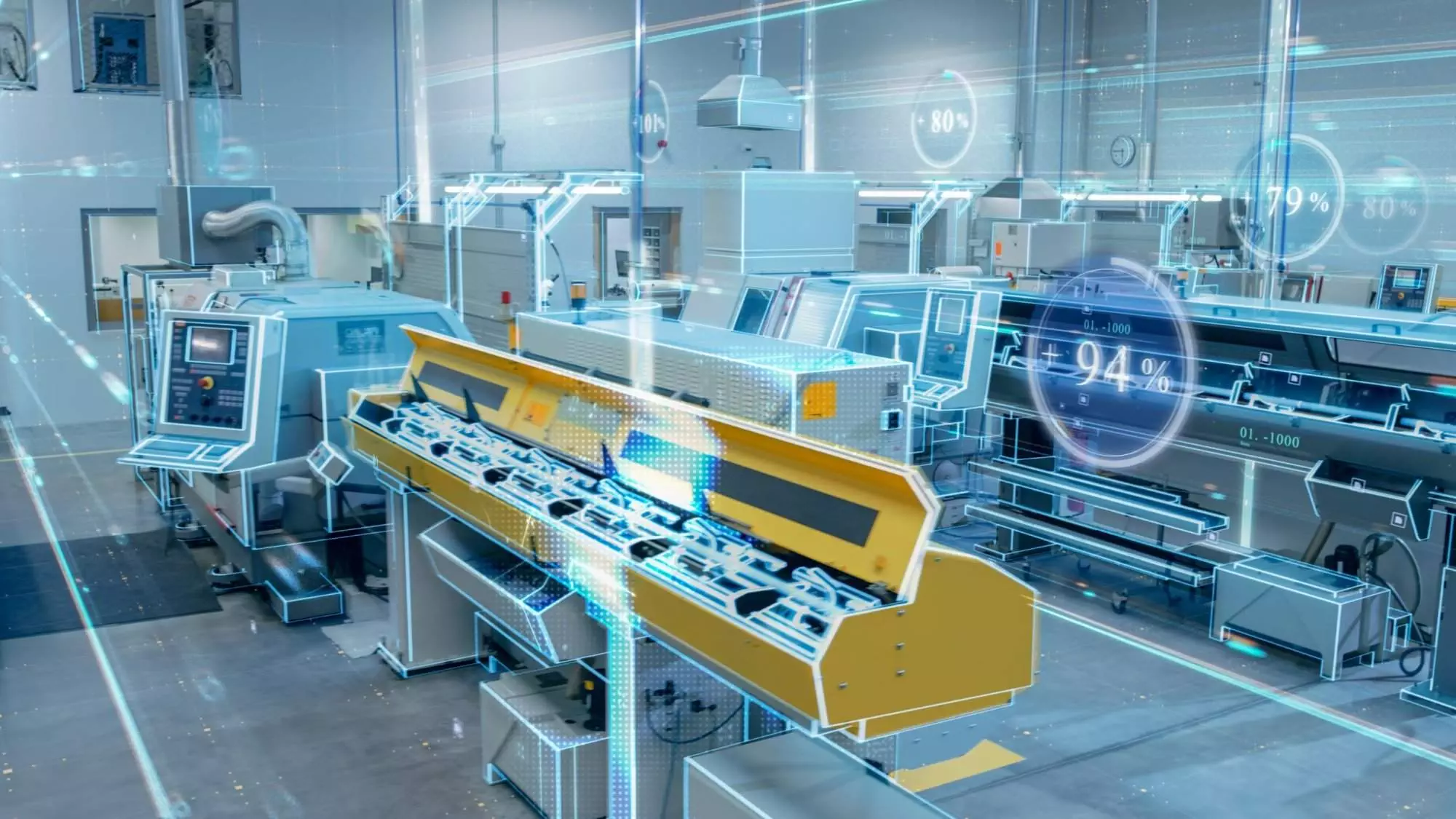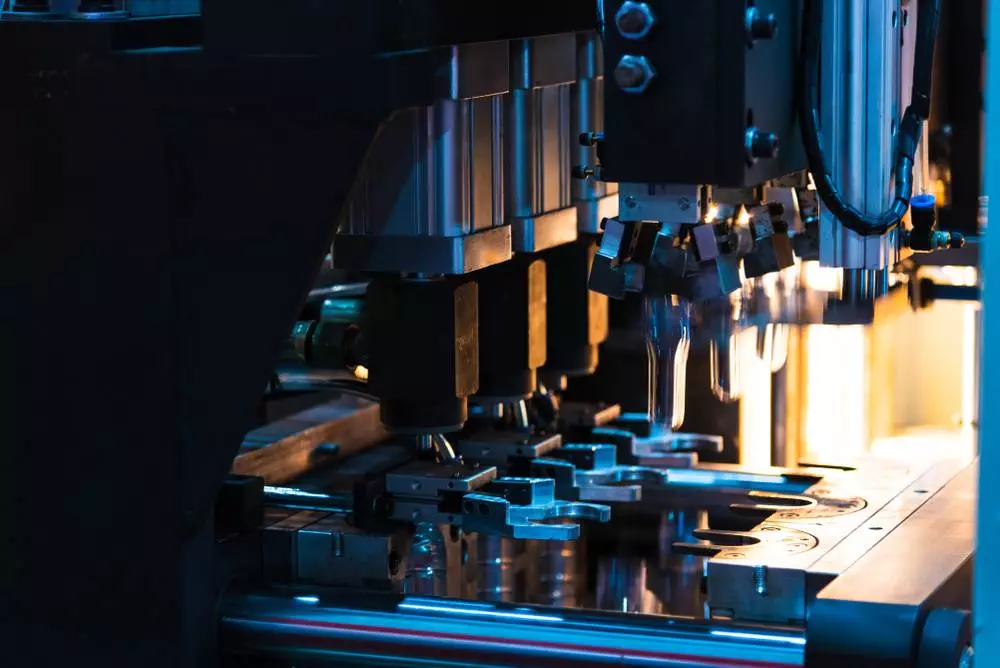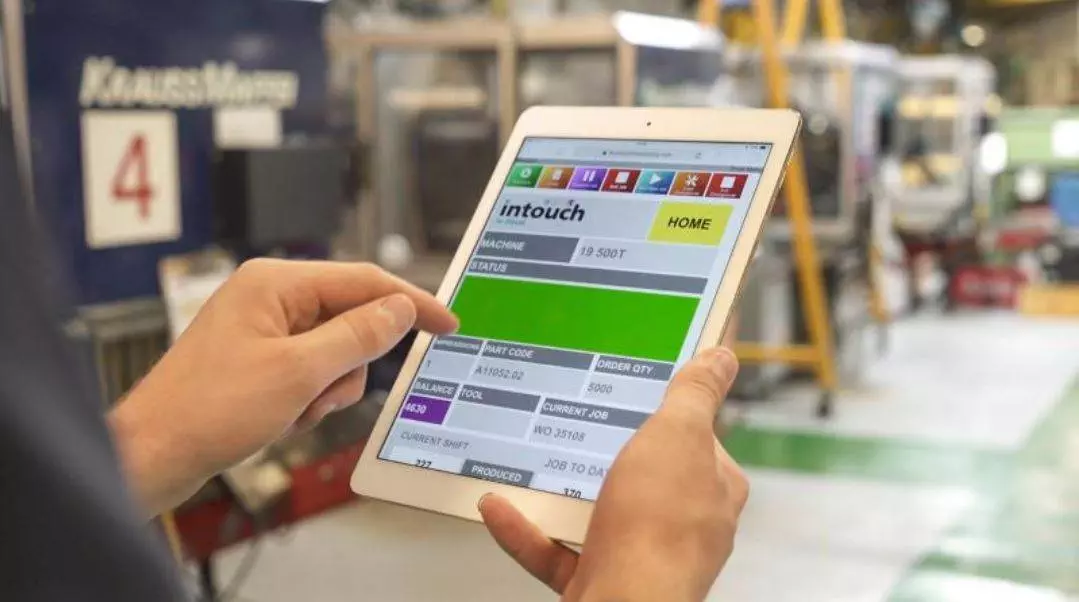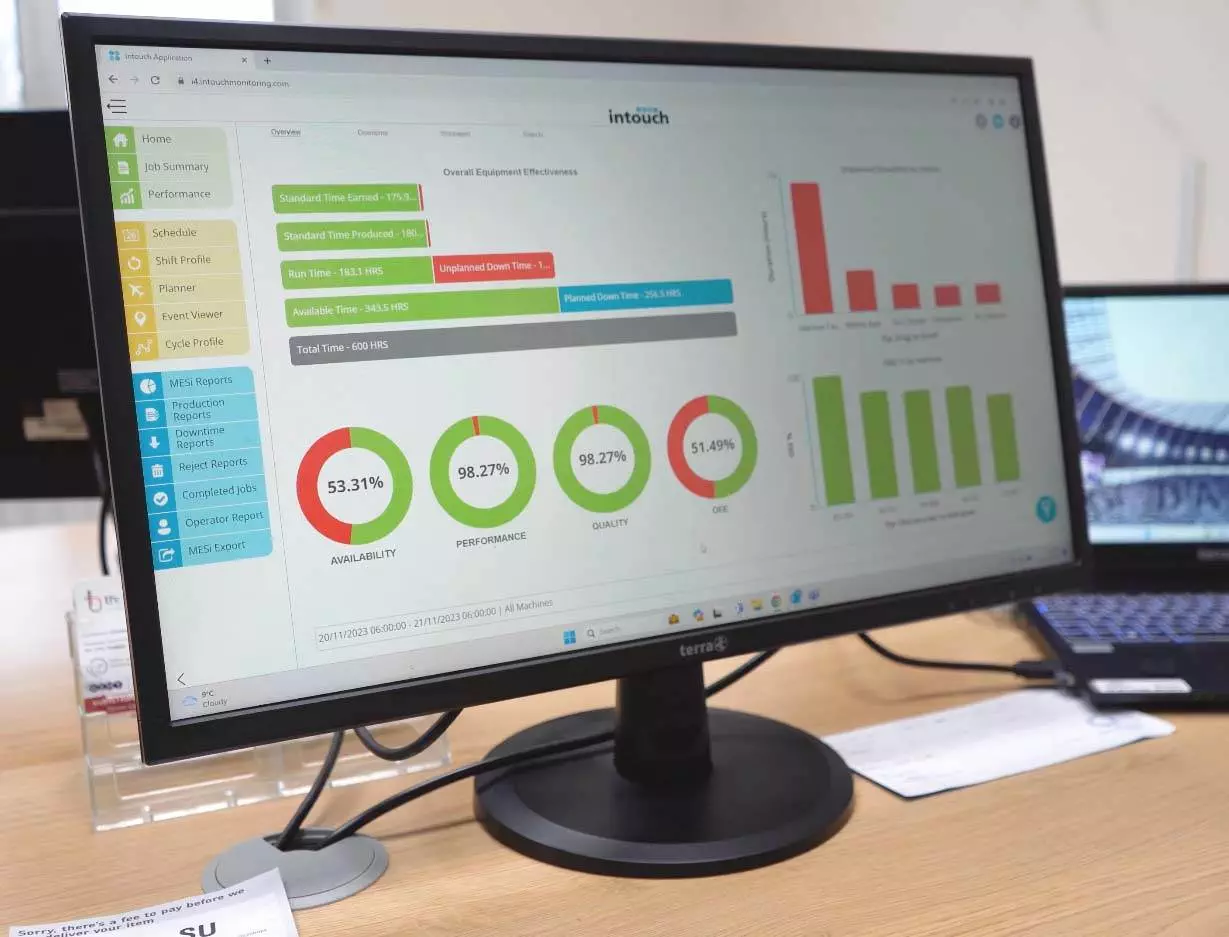Industry 4.0 for manufacturers: Myths and benefits
The promise of what can be achieved with Industry 4.0, the so-called fourth industrial revolution, is touted as the ultimate solution to inefficiencies and low productivity, it is seen as a panacea for businesses struggling to compete in an increasingly globalised and technology-driven world. Yet, as with any transformative concept, Industry 4.0 is accompanied by a host of myths and misconceptions that can muddy the waters for manufacturers contemplating this transition. To navigate this complex landscape and achieve the success and rewards publicised, it’s crucial to distinguish between the myths and the tangible benefits that Industry 4.0 can offer manufacturers.
The myths of Industry 4.0
One of the most pervasive myths surrounding Industry 4.0 is that it is prohibitively expensive and therefore only accessible to large, well-financed enterprises. This misconception stems from the association of Industry 4.0 with cutting-edge technologies like artificial intelligence (AI), the Internet of Things (IoT), and advanced robotics, which indeed can carry a very high price tag.
However, the reality is more nuanced. While initial investments are required, the modular nature of Industry 4.0 technologies allows manufacturers to start small and scale up gradually. For example, implementing IoT sensors to monitor machine performance can be a cost-effective entry point, with further investments made as ROI becomes evident.
Another myth is that the transition to Industry 4.0 requires a complete overhaul of existing systems and processes. In truth, Industry 4.0 is as much about integration as it is about innovation. Rather than discarding legacy systems, manufacturers can enhance them by incorporating new technologies that enable better data collection and analysis. This can improve decision-making and operational efficiency without the need for disruptive changes.
There is also a belief that Industry 4.0 is only relevant to high-tech industries, leaving traditional manufacturers behind. This is far from accurate. Whether it’s automotive manufacturing, consumer goods, or food production, the principles of Industry 4.0—such as predictive maintenance, real-time monitoring, and supply chain optimisation—can be applied across a wide range of manufacturing sectors, yielding substantial benefits.
Benefits of Industry 4.0
The potential benefits of Industry 4.0 for manufacturers are numerous, ranging from improved operational efficiency to enhanced product quality and better customer satisfaction. One of the most significant advantages is the ability to harness data. In an Industry 4.0 environment, data is generated at every stage of the manufacturing process—from raw material procurement to final product delivery. This data, when properly analysed, can reveal insights that drive continuous improvement.
For instance, predictive maintenance is a key benefit of Industry 4.0. By using sensors and IoT devices to monitor equipment in real-time, manufacturers can predict when a machine is likely to fail and perform maintenance before a breakdown occurs. This reduces unplanned downtime, extends the lifespan of equipment, and leads to more efficient use of resources. This can be achieved regardless of the age of the machines in your production line.
Greater flexibility
Additionally, Industry 4.0 enables greater flexibility in manufacturing. Advanced automation and smart factories allow manufacturers to quickly adapt to changes in demand without compromising on efficiency or quality. This agility is particularly valuable in today’s market, where consumer preferences can shift rapidly, and customisation is increasingly in demand.
Improve supply chain performance
Industry 4.0 can significantly improve supply chain management. By integrating digital technologies across the supply chain, manufacturers gain end-to-end visibility, allowing for more accurate forecasting, better inventory management, and quicker responses to disruptions. This not only reduces costs but also improves service levels, reduces the amount of capital tied up in stock and customer satisfaction.
Sustainability
Finally, Industry 4.0 can play a crucial role in sustainability efforts. With growing pressure on industries to reduce their environmental impact, the ability to monitor and optimise energy consumption and waste production is invaluable. Smart energy management systems, powered by Industry 4.0 technologies, can help manufacturers achieve their sustainability goals while also cutting costs.
Overcoming barriers
Despite the clear benefits, the adoption of Industry 4.0 is not without its challenges. One of the primary barriers is the skills gap. As manufacturing processes become more digitised and data-driven, the demand for skilled workers who can operate and maintain these systems increases. Addressing this requires investment in training and development, as well as a cultural shift towards embracing new technologies.
Another challenge is cybersecurity. As manufacturing systems become more interconnected, they also become more vulnerable to cyber threats. Ensuring robust cybersecurity measures are in place is essential to protect sensitive data and maintain operational integrity.
Lastly, change management is a critical factor. The shift to Industry 4.0 involves not just technological change, but also organisational change. It requires buy-in from all levels of the organisation, clear communication of the benefits, and a phased approach to implementation.
What are the rewards of Industry 4.0 for manufacturers
Industry 4.0 represents a significant opportunity for manufacturers to enhance their operations and maintain competitiveness in a rapidly evolving market. While myths and misconceptions persist, the tangible benefits of Industry 4.0—such as improved efficiency, greater flexibility, enhanced supply chain management, improved margins and sustainability—make it a worthwhile investment.
However, success requires careful planning, ongoing education, and a commitment to overcoming the associated challenges.
As manufacturers navigate this transformation, they would do well to remember that Industry 4.0 is not a destination, but a journey—a journey that promises to reshape the future of manufacturing.
WEBINAR: Transform your manufacturing business with Industry 4.0 in just 30 days
If you’re looking for hands-on guidance, why not join the forthcoming webinar:
3 Signs that you are ready to digitise your factory
Are you under pressure to improve efficiencies and reduce down time, which means you’re now looking to implement smart factory technology…
Plastics Manufacturing in a volatile world
The pandemic has highlighted that the need for flexibility and adaptability in manufacturing operations is crucial for navigating…
5 ways you could improve your production efficiency right now
The importance of production efficiency cannot be overstated. It means you are making the most out of your resources – time, materials,…
Have you thought about adopting smart technology?
What's stopping you adopting smart technology in your plant? Are you worried about the costs, the expertise and training needed? What is…
The advantages of a paperless manufacturing operation
So what happens when you switch to a paperless Manufacturing Execution System? You immediately get more predictable manufacturing with more…
Why is planned downtime for maintenance so important?
Often with pressure of delivery deadlines, it is easy for planned maintenance to be pushed down the priority list and only maintain it when…
How to choose the right manufacturing execution system (MES) for you
Selecting the right MES solution will give you the data and insights necessary to optimise your OEE, give you a competitive advantage and…
What would a 1%, 5% or 30% improvement in OEE mean to you?
Are you under pressure to improve efficiencies and reduce down time, which means you’re now looking to implement smart factory technology…
How to transform your plant’s efficiency and profitability with MES
Squeezing everything from your resources without compromising on quality is a challenge increasingly faced by manufacturers. So how can…
How it works
Getting started with Intouch is as easy as 1, 2, 3
1. Book a demo
Let us show you what we can do. Jump on a demo call and our friendly team will take you through the Intouch system and answer any questions you might have.
2. Enjoy a free trial
Don’t just take our word for it! We’ll lend you our technology for a 60-day free trial so you can see exactly how it can benefit the everyday operation of your business.
3. Receive ongoing support
It doesn’t end there. If you decide Intouch is the right production monitoring system for you, we’ll work with you to help you take control and make significant improvements in OEE.









